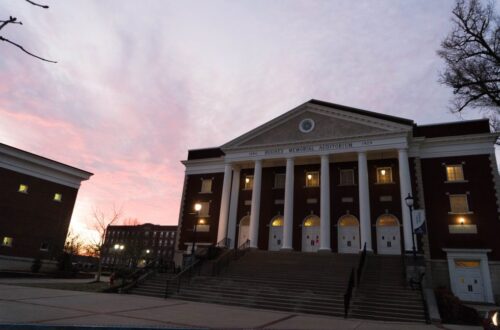4 rivers and a lake
I’ve found this overview by Scot McKnight very helpful in getting a sense of what the emerging movement is about. McKnight argues that it’s not “a theological confession nor an epistemological movement but an ecclesiological movement. It’s about how to ‘do church’ in our age.” He starts by critiquing some misconceptions in D.A. Carson’s book Becoming Conversant with the Emerging Church but accepts Carson’s assertion that it’s essentially a protest — against evangelicalism, modernism, and the mega-church.
I thought I’d jot down a few responses here so I remember the gist of the article. McKnight uses the metaphor of “Lake Emerging,” into which 4 streams flow: the postmodern, praxis, post-evangelical, and political.
River 1: Postmodern
Under “postmodern,” I found I objected much less than I thought I would. McKnight’s is a moderate picture; he distinguishes “hard” from “soft” postmodernism, and most of the elements he attributes to the emerging church belong in the soft category. There are some extreme voices within the movement, but his feeling is that those aren’t its defining ones. He delineates the ways one can follow Jesus in a postmodern era: by ministering to postmoderns, with postmoderns, or, most radically, as a postmodern. But even this most extreme category didn’t offer me much to object to. For example, rather than arguing that there is no absolute truth (or “metanarrative”), the people in this “river” would argue merely that it can’t be known absolutely because we’re embedded in time and space. I have no problem with that, though I do entertain the belief that when we enter into relationship with a God who exists outside time and space, he provides us with a window into transcendent truth; we can get transforming glimpses of it in our relationship with him, even if they can’t be reduced to language, or systematized. (Maybe that makes me a semi mystic… To me, the prophetic visions and dreams of the Bible are examples of this.)
I have no argument with the idea that the gospel needs to be borne out in experience and not just assented to intellectually. Nor do I object to acknowledging the limitations of language, and the way propositions about God can limit him. I don’t have a die-hard commitment to any one school of theology; I don’t think that’s how “the mind of Christ” is defined. I’ve never really been attracted to theology in the sense of thought-systems that use the Bible as a starting point, then construct their own conceptual “map.” So a conversation among different branches of theology, with a broad agreement on classical creeds, doesn’t bother me. And it doesn’t bother me to see the Bible as stories. I didn’t pick up any of the dismissive attitude toward history that seemed apparent in Blue Like Jazz.
But I’d quibble with the notion that truth is “relational rather than rational.” McKnight says this kind of statement is a ranking of kinds of knowledge and not the dichotomy it appears to be. But I believe truth is rational. In fact, I believe God has given us plenty of evidence that he is rational, though his rationality isn’t limited by time and space and sin, and he has certainly fit himself into our rational limitations for the purpose of relationship: in Scripture, in the Incarnation, in covenants. How could we trust an irrational God? I like C.S. Lewis’s idea of a rough correspondence between our rationality, and God’s suprarationality: “The divine ‘goodness’ differs from ours, but it is not sheerly different: it differs from ours not as white from black but as a perfect circle from a child’s first attempt to draw a wheel.”
That said, I do believe God intends for us to discover and plumb revealed truth in community with others, and in relationship with him. I may not think truth itself is “relational not rational,” but I think it’s best processed relationally. There are probably lots of better examples than this, but: I’ve never heard anyone lament the mass publication of the Bible, which makes it so accessible and democratized. But sometimes I wonder what we’ve lost by making it possible to read it in isolation. How different it must have been only to hear it spoken or chanted in the synagogue, to take it in as part of a social experience, to experience that group memory and identity. How much more relevant all those admonitions to “Remember!” in scripture must have been, without the knowledge that you don’t have to remember; you can go home and look it up. How intergenerational it must have been. There must be dimensions of its truth we entirely miss in our private cubicles and quiet times. All of this to say that social experience of revealed truth — scripture as one example – must make it far richer. So I would agree with the emerging notion that truth has a relational aspect.
River 2: Praxis
The basic assertion is that practice — outward working of inner faith — is vital. Here McKnight encompasses worship (physical expression has spiritual significance), orthopraxy (“how a person lives is more important than what they believe”), social justice (we are “summoned by God to work for justice in this world,” not to withdraw into a sealed off Christian bubble), and being missional (taking Christ into the world rather than inviting the world to church).
Again, I’m basically on the same page in these things. One qualifier: it doesn’t seem useful to say how a person lives is more important than what they believe; that strikes me as a milder example of Miller’s anti-rationalism in Blue Like Jazz. How I live reflects what I believe; both matter. Part of Jesus’s lifestyle was his habit of reflection. Using our minds is an act of worship and a valid form of experience.
Second qualifier: I’m absolutely in favor of a missional approach. But at the same time I think there’s a value in having a shared place to locate your community. It’s not that I think ministry has to be “building-centric.” But the significance of place is far-reaching. I wouldn’t want to see the church become as rootless and transient as the worst of suburban culture.
River 3: Post-evangelical
Here McKnight includes post-Bible-study-piety (goal: “not to master the Bible but to be mastered by the Bible,” in other words to live compassionately rather than focus on intellectual mastery), post systematic theology (goal: respect for theology without subscribing to one school; recognizing that no one system has a lock on all truth), and post in vs. out (goal: to avoid preoccupation with who is and who isn’t a Christian).
All this sounds good to me, as long as it’s led by the Holy Spirit. As long as both sides of the equation are there — knowledge AND practice of the Bible, both of which are mandated in it – this sounds like biblical Christianity to me.
McKnight issues a warning on the in vs. out point. “Any movement that is not evangelistic is failing the Lord,” he points out. It’s fine not to get preoccupied with judging others, but there had still better be a clear aim of summoning everyone to follow Christ.
River 4: Political
Most emerging church folks are democrats, McKnight acknowledges. Fair enough. I don’t fit into that category, but neither do I have that much to say about that. I guess I think the kingdom of God represents an alternative to the political process; it doesn’t much matter to me, especially these days when there’s so little difference, which party is which — as long as we’re working for justice whatever our brand.
All in all the emerging movement is a different animal than I’d thought. The preconception I had was of my own previous experience: a megachurch trying to sell itself to a postmodern market, altering its product in order to do so. That’s not what’s described in this article at all. This is a movement that makes sense to me in a lot of ways, at least as it’s described here.
At the beginning, McKnight pointed out that the courteous thing to do when defining a movement is to let its members supply the description. That’s what he’s attempted to do here, and besides picking up quite a few leads for future reading, I felt the article supplied the broad outlines I needed. In some ways, after reading this, I get the eerie feeling I’ve been emerging myself for some time…


